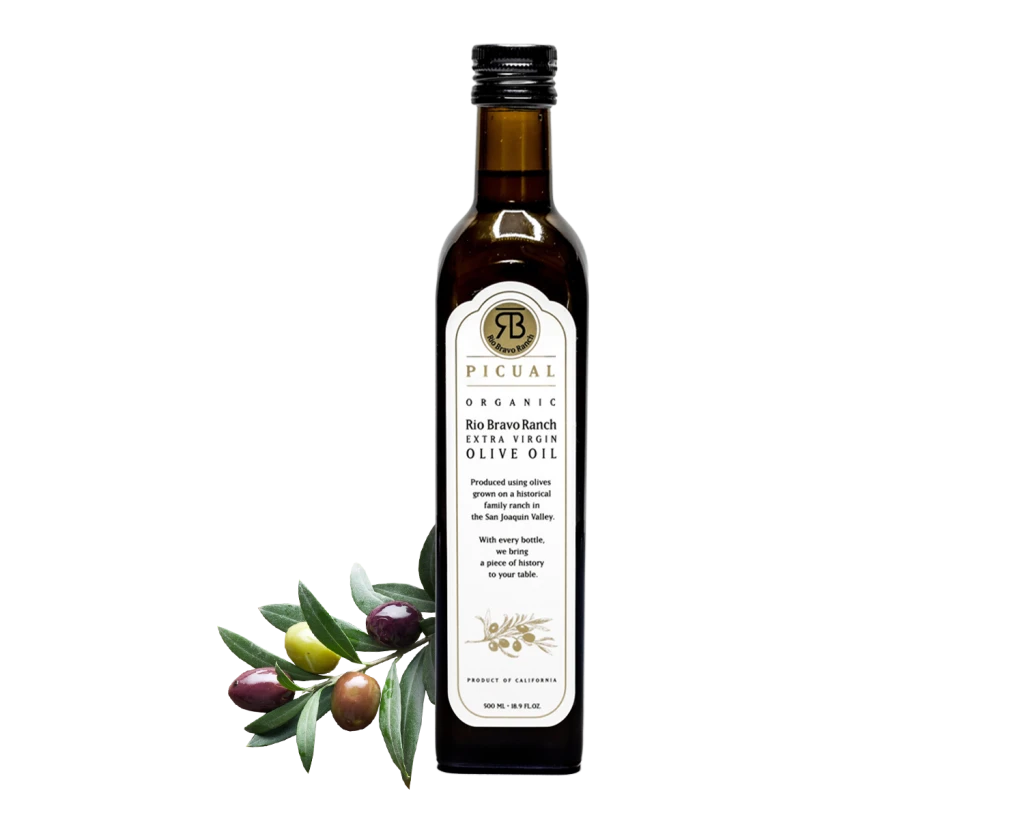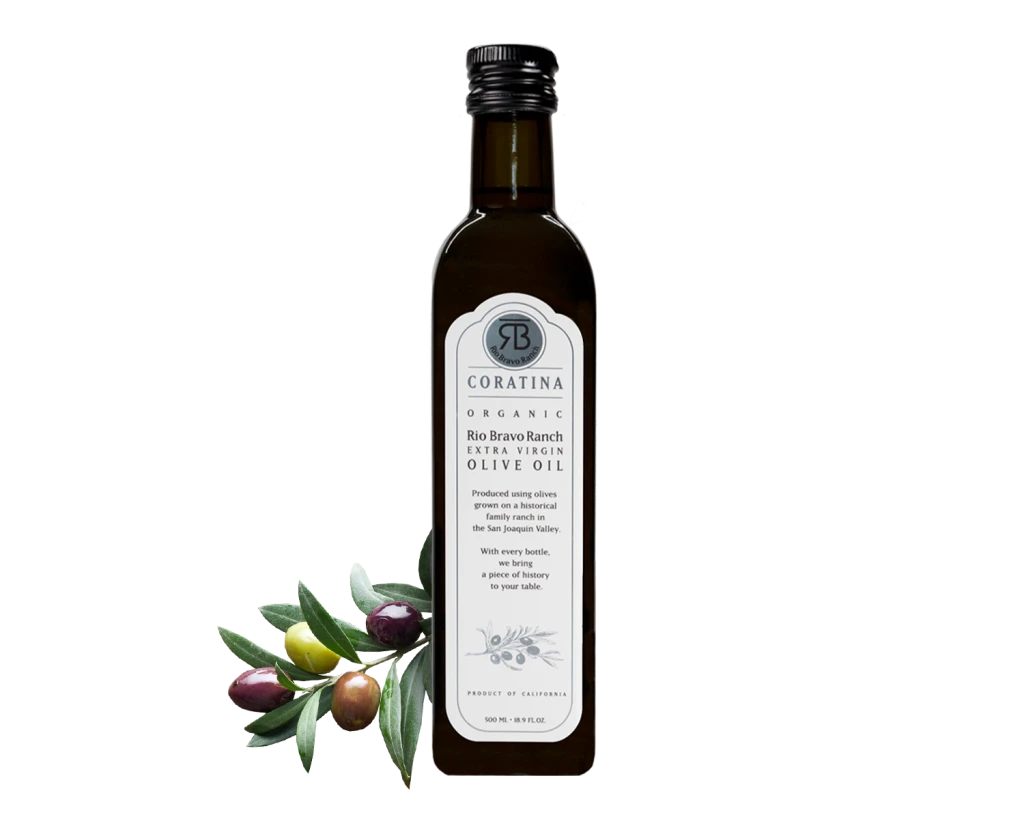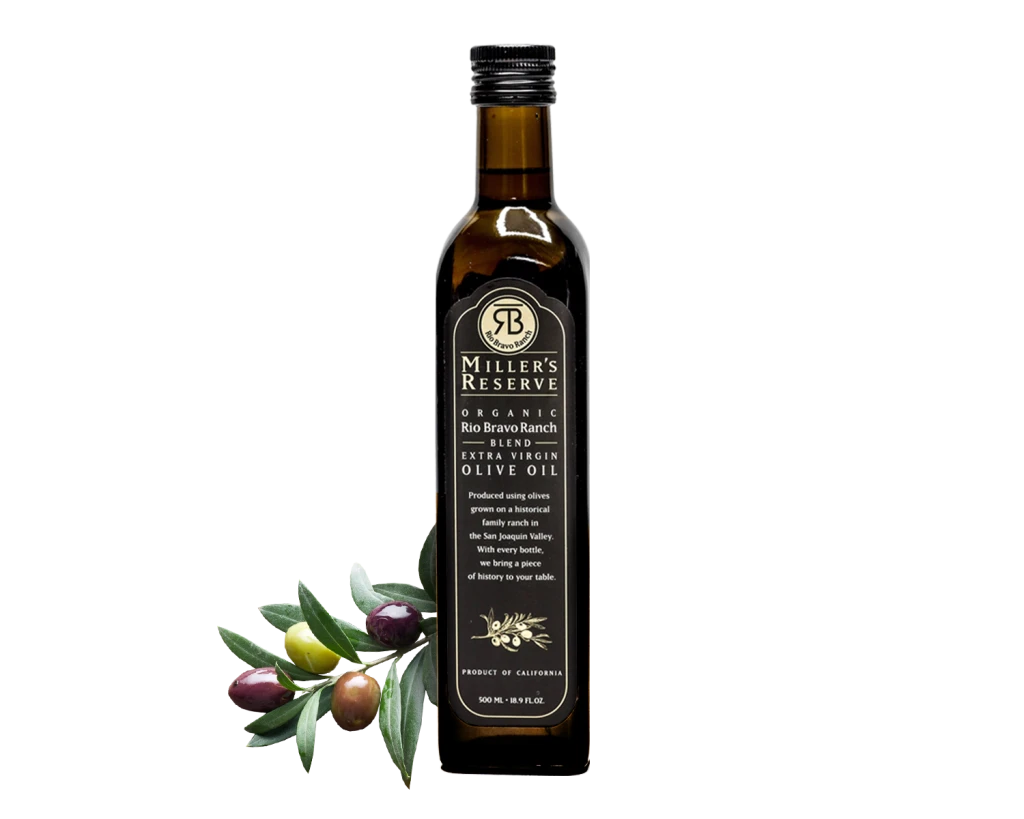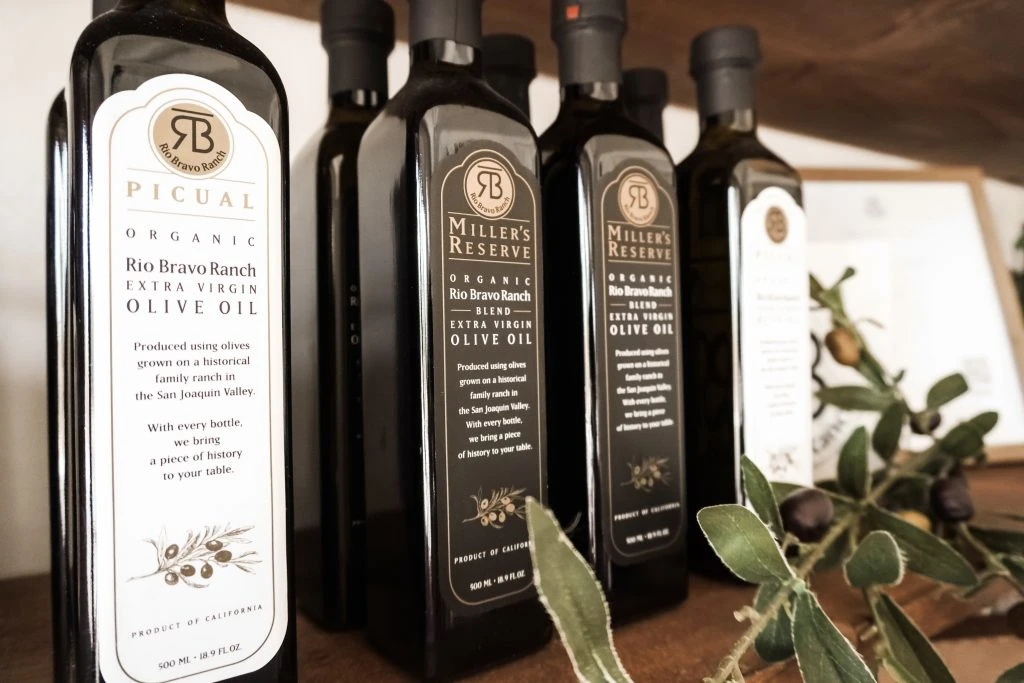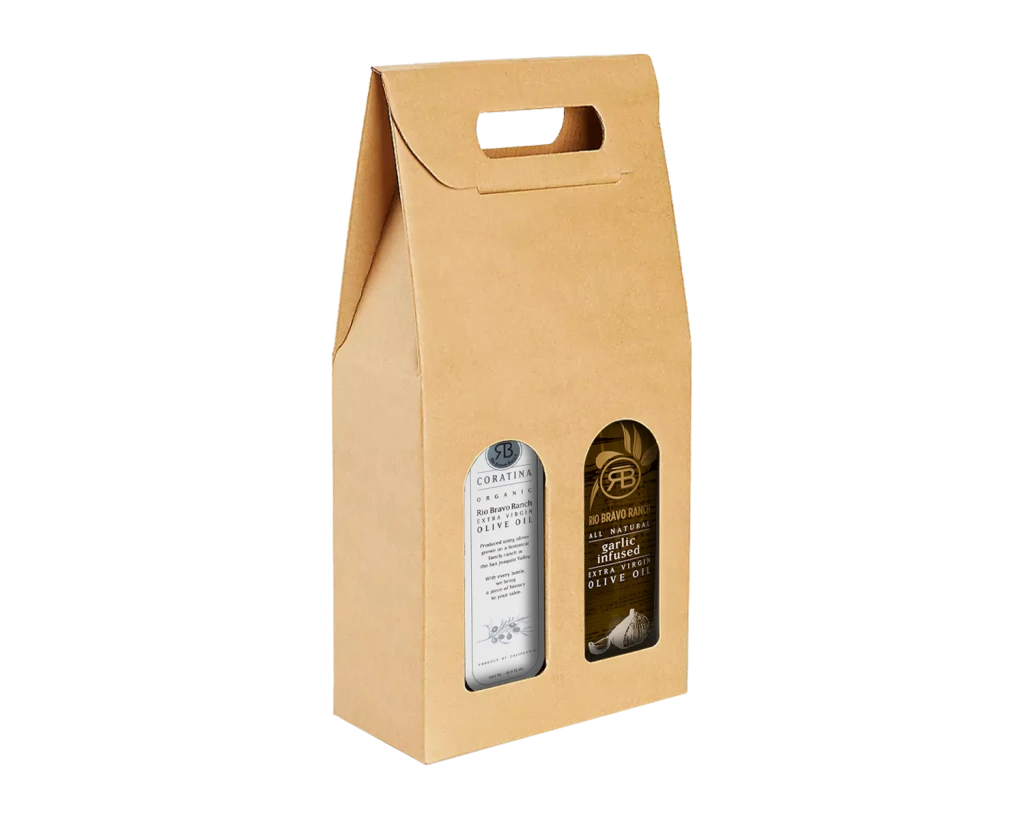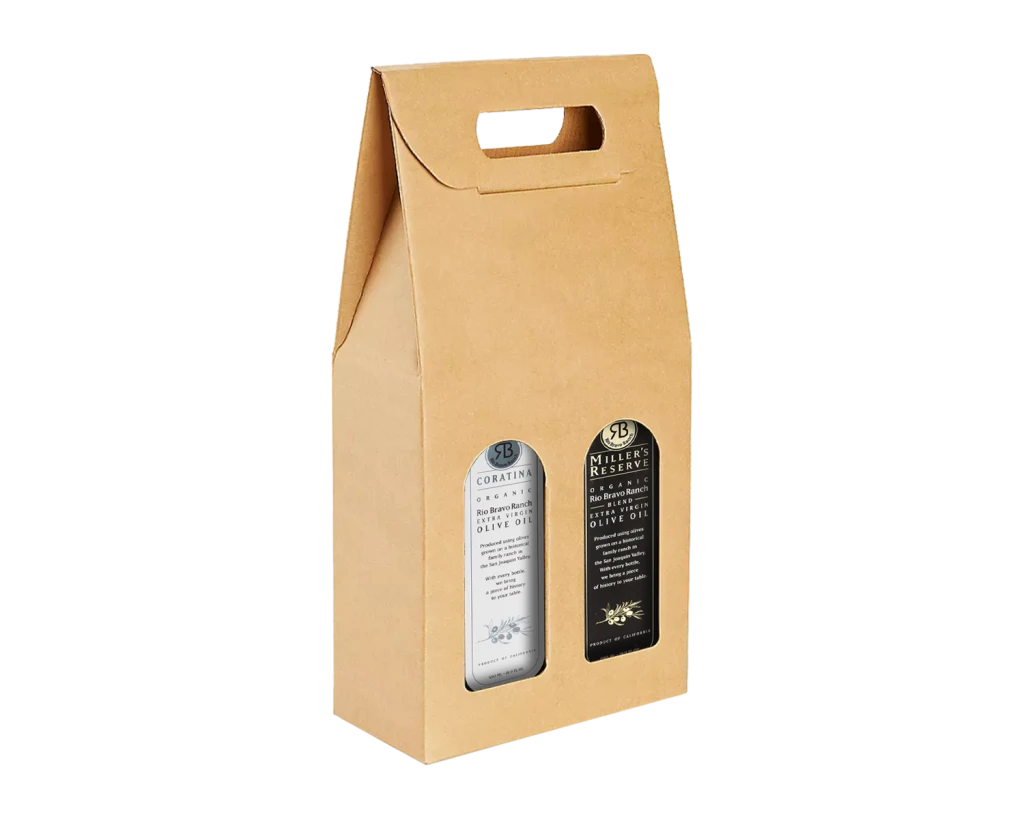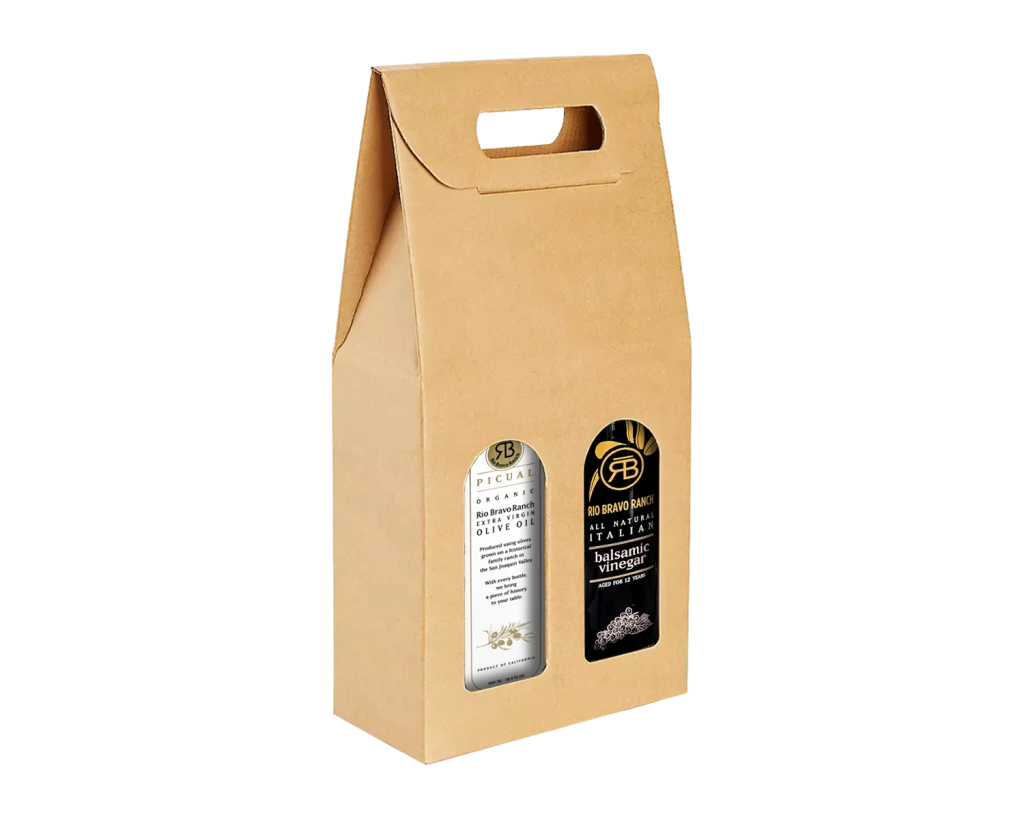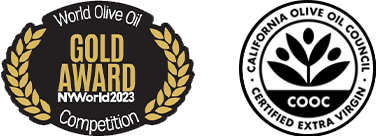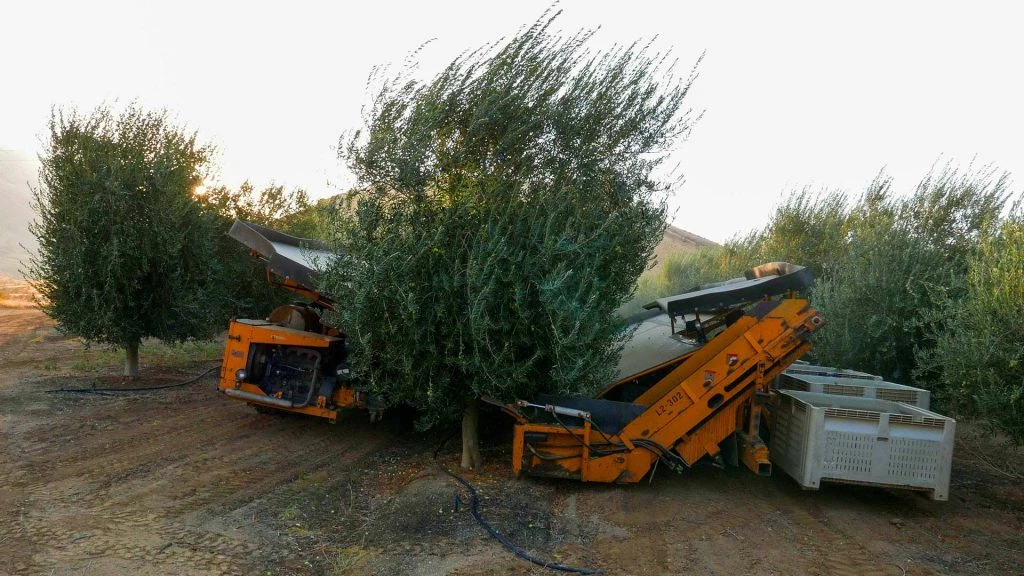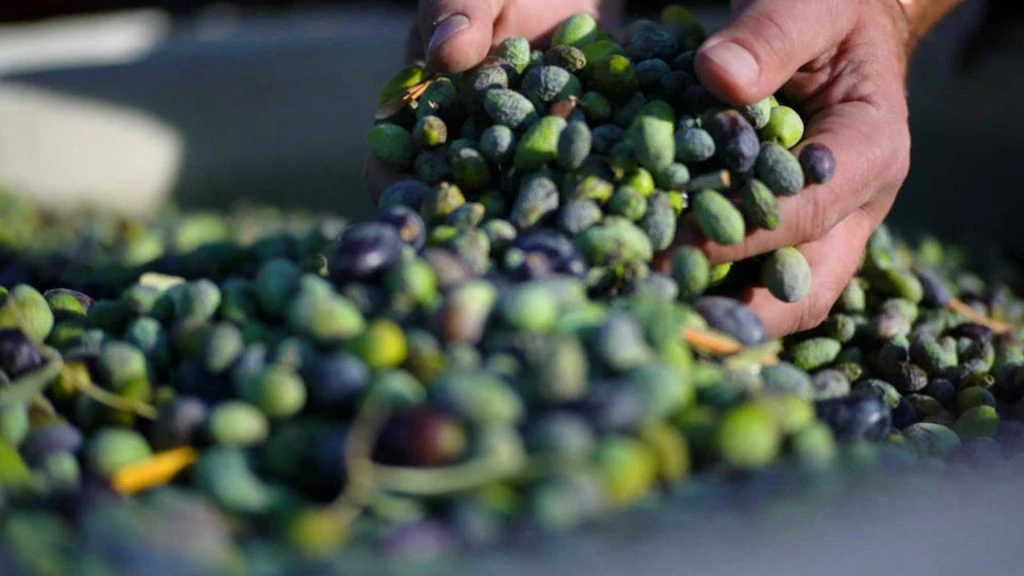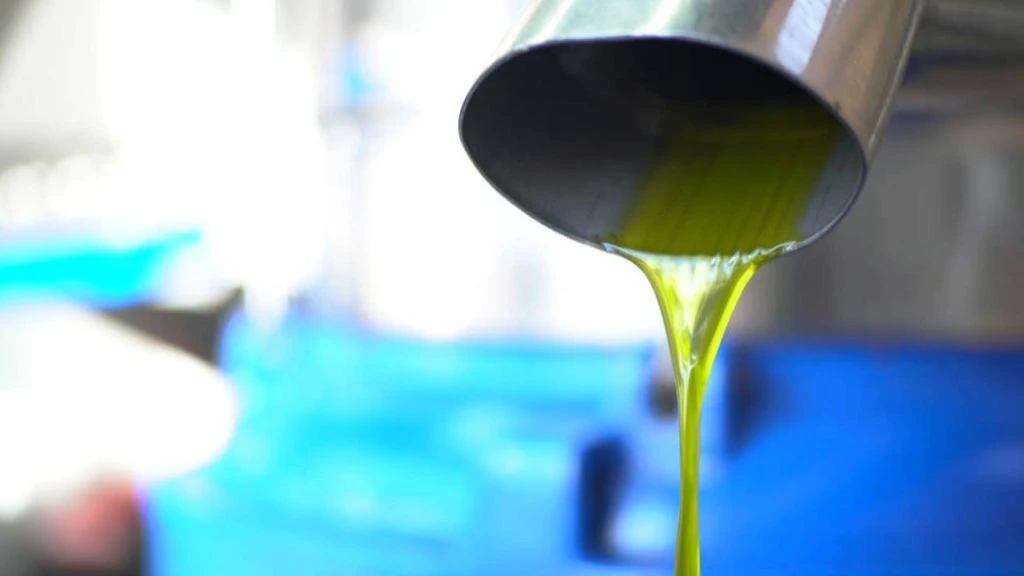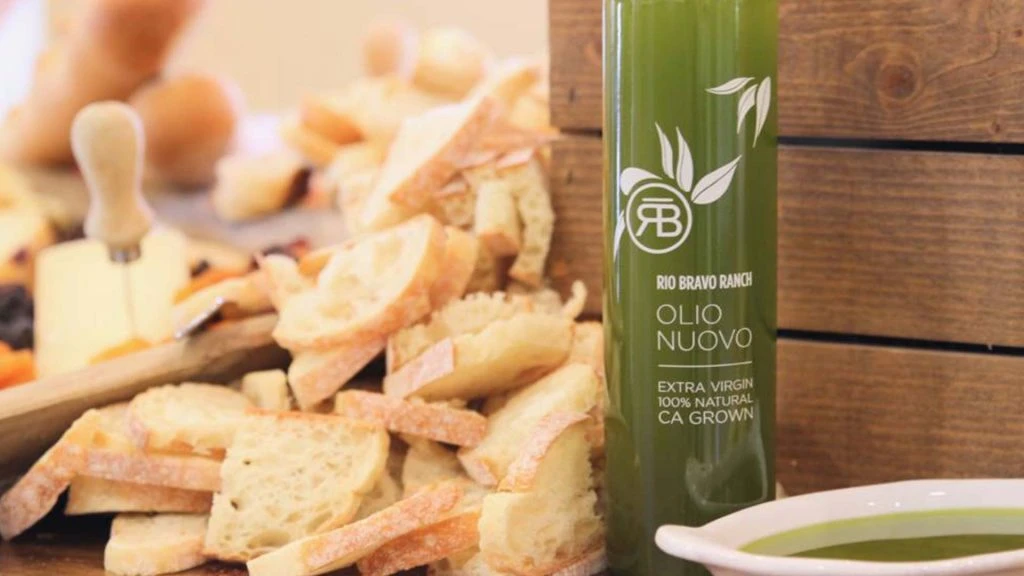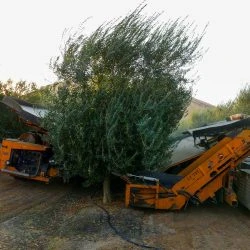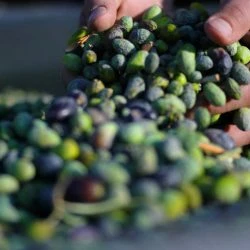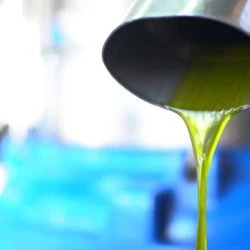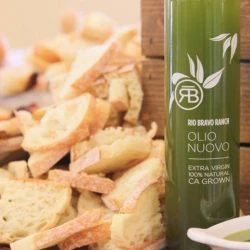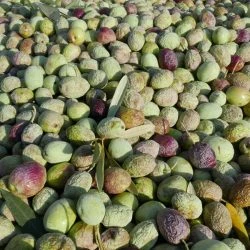Our southern Spanish and Italian Olive Cultivars were carefully selected to match the dry heat of the Central Valley. On the banks of Kern River we grow certified organic Coratina, Picual, Nocellara, Pendolino, Frantoio, Ascolana, and Maurino olives. The orchards are surrounded by an equally wide array of citrus trees that our family has cultivated since the 1960s. We are fifth generation California farmers, and we are proud to be producing an award winning, organic, olive oil grown in California.
Our oils cover an incredible spectrum of flavors, and year after year we are awarded for their quality. Quality begins in the orchard but must be carried through every step of the process until it reaches our customers. Heat, light and air are the enemies of fresh olive oil. We limit their involvement at every level to deliver the freshest olive oil possible to our customers. Don’t let your olive oil sit on a shelf, buy it directly from Rio Bravo Ranch.
Fresh olive oil is more nutritious and more flavorful. The first thing one should do when buying olive oil is look for the harvest date. Good olive oils will always have it on their bottle. The flavors and quality of a well made extra virgin olive oil should last, if stored correctly, up to two years. However, why use year old olive oil when you could celebrate the harvest every year with fresh olive oil from Rio Bravo Ranch?
Types of Olives
Our southern Spanish and Italian olive oil cultivars were carefully selected to match the dry heat of the southern Central Valley.
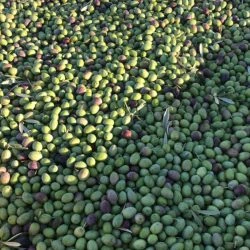
Coratina
These olives are large and oval with no nipple and many small lenticels. The fruit ripens evenly and late in the season. Coratina olives produce a robust oil with high levels of polyphenols making it intense and pungent.
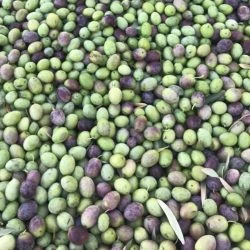
Picual
The Picual olive has a distinctive shape, with a marked point at the end of the fruit. Picual is one of the most popular olive oils in the world today due to its high polyphenol count, which brings with it a host of health benefits. The flavor is medium to robust and causes a noticeable.
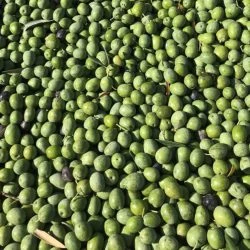
Nocellara del Belice
These are large, plump olives that make both good table olives and good olive oil. When being used for oil, the olives are harvested early to get a light, fruity oil.
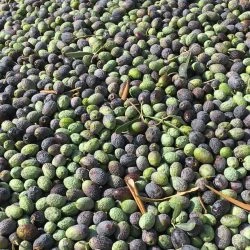
Frantoio
Chock full of desirable pepper and extremely pungent this Robust green oil displays capsicum-like sensations & registers high in anti-oxidant content without a ton of bitterness. Celebrate the lingering, healthy burn!
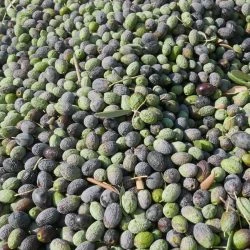
Pendolino
Due to its high and constant pollen production, Pendolino was planted primarily for pollinating the rest of our orchards. It turns out to have a wonderfully complex, delicate flavor. Hints of citrus and walnut seem to drift from the Rio Bravo’s nearby orchards into this Italian variety.
Health Benefits
Discover all the benefits Olive Oil has to offer!
In the 1960s, researchers noticed that people living in countries around the Mediterranean had a lower incidence of heart disease, despite their high intake of mono-unsaturated fats, such as olive oil. This led to investigations into what is now known as ‘the Mediterranean diet’.
Vitamin E is the body’s primary fat-soluble antioxidant. It goes after and directly neutralizes free radicals in all the fat-rich areas of the body. In combination, stable monounsaturated fats and vitamin E add a significant safety factor to cellular processes like energy production, a process that generates free radicals even when things are running smoothly. When cellular processes such as mitochondrial energy production are not well protected, the free radicals produced can interact with and damage any nearby molecules–a process called oxidation. When a cell’s mitochondria become damaged, the cell cannot produce enough energy to supply its needs and dies. If a cell’s DNA becomes damaged, the cell may mutate and become cancerous.
The anti-inflammatory actions of the monounsaturated fats, vitamin E and polyphenols in olives may also help reduce the severity of asthma, osteoarthritis, and rheumatoid arthritis, three conditions where most of the damage is caused by high levels of free radicals. The vitamin E in olives may even help to reduce the frequency and/or intensity of hot flashes in women going through menopause.
Once a fatty meal is eaten, it takes the liver around six to 12 hours to scour dietary fats from the blood and change them into compounds such as LDL and HDL (high density lipoprotein) cholesterol. There is evidence that this six to 12 hour period may be a crucial contributing factor in atherosclerosis. Mono-unsaturated fats like olive oil are cleared from the blood much faster than saturated fats, and this reduces the window of opportunity for the development of atherosclerosis. Mono-unsaturated fats also help to prevent the blood from becoming sticky after a fatty meal and forming dangerous clots.
Recent studies into the health benefits of olive oil have found that it can lower the risk of coronary heart disease by reducing blood cholesterol levels. According to one study, a person’s risk of fatal heart attack is halved in just two to four years once they switch to ‘the Mediterranean diet’, which includes using olive oil as the main dietary fat, increasing vegetable intake, and limiting meat and dairy foods.
Free radical damage can lead to numerous ailments. For example, when free radicals cause the oxidation of cholesterol, the oxidized cholesterol damages blood vessels and builds up in arteries and can eventually lead to heart attack or stroke. So, by preventing the oxidation of cholesterol, the nutrients in olives help to prevent heart disease.
Low density lipoprotein cholesterol (LDL) is considered the ‘bad’ cholesterol. This is because it can stick to artery walls and cause atherosclerosis, which increases the risk of coronary heart disease and stroke. Studies into LDL cholesterol have suggested that oxidation is an important step in the development of atherosclerosis. It seems that mono-unsaturated fats reduce the capacity of LDL cholesterol to oxidize, which may explain the protective properties of olive oil. However, extra virgin olive oil also contains around 40 antioxidant phytochemicals. Antioxidants have been associated with reduced oxidation of LDL cholesterol, so perhaps these phytochemicals are the factors responsible for the health benefits.
The stability of monounsaturated fats translates into a protective effect on the cell that, especially when combined with the antioxidant protection offered by vitamin E, can lower the risk of damage and inflammation. In addition to vitamin E, olives contain a variety of beneficial active phytonutrient compounds including polyphenols and flavonoids, that also appear to have significant anti-inflammatory properties.
Our Olives
In the mid 2000’s, it was the next generation of the Nickel family that turned the farm towards olives. George W. Nickel Jr.’s grandchildren worked with an olive consultant, Alexandra Devarenne, an olive oil expert and founder of CalAthena, to select olive cultivars for the Rio Bravo Ranch. With Devarenne the family discovered that the hot, dry climate of Kern County and rich soils at the base of the southern Sierra had much in common with the climate of famous olive regions in southern Italy and Spain.
Devarenne helped the family select seven olive cultivars that would give the Nickel family’s olive orchards a full spectrum of light, medium, and robust oils. Frantoio, Maurino, and Ascolana olives create a light, buttery oil, while varieties like Nocellara de Belice, Pendolino, Picual, and Corantina offer more robust flavors.
In the fall, when the olives are ready for harvest, the Nickel family works with Yves and Clotilde Julien, owners of Mill on Wheels. The French couple brings their state-of-the-art, mobile olive oil press from Paso Robles to the edge of the Rio Bravo Ranch orchards. The mill runs day and night during the fall harvest as freshly picked olives are fed into the two-phase, cold press system. The olives are only harvested when the temperature is below 80 degrees, and the daily harvest is milled within less than 12 hours to assure the best, freshest quality oil.
It is a true joy to taste olive oil as it flows from the press. The oil is rich with flavor and nutrients, and this “olio nuovo,” as it is known in Italy, is a short-lived delicacy. To make an olive oil last more than a couple of months, the olive oil must be racked, allowing all the remaining olive sediment to fall to the bottom of tanks and be removed. To maintain the quality of our olive oil after it is harvested and pressed, but before it is shipped to our customers, we built a temperature-controlled building that guarantee’s our oil’s freshness. This bold step into the world of olives and olive oil reflects the next generation of the Nickel family’s pride in farming and vision for the future.
